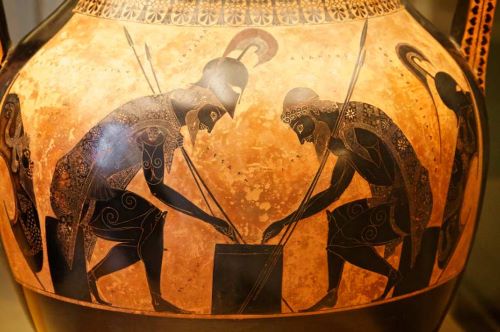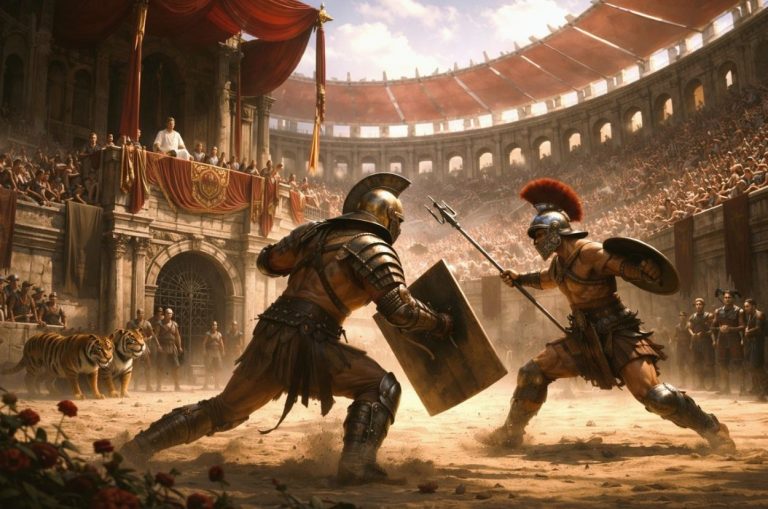

The period of Ancient Greece can often be known for its mythology, with Gods, Heroes, and Philosophers often being noted. It’s not uncommon to have heard of several names or have learned many of the teachings from their lessons, as many of them are thought to have had an impact on the way that we live today and why certain things happen.
However, something that many may not have realized about Ancient Greece was the fact that there were some gambling activities prevalent during this era, too. Indeed, there are instances in which certain dice-based games were thought to have been invented and understood, with stories, myths, and legends of some Gods competing against each other as they looked to take control of the world.
Of course, gambling has become a hugely popular pastime and form of entertainment for global populations worldwide in the years since. In addition, the stakes have become exceptionally lower, especially as the world isn’t up for grabs as the Gods are thought to have contested.
Players who use Australian online casinos for real money wagering may suggest that there are still some high stakes at play, as they continue to bet with their hard-earned cash, but it’s not quite on the level that Greek mythology appears to tell us.
With the world thought to have been in the hands of a victor in a dice-based game, what is the truly fascinating story between Zeus, Hades, and Poseidon’s dice game for dominion over the universe?
Zeus, Hades, and Poseidon’s dice game for world dominance
According to some Greek Mythology beliefs, it’s believed that Zeus, Hades, and Poseidon had played a game of ‘throw the dice’ to help them decide how to split the Universe between them. As we know, the world had been split into parts, with Zeus obtaining heaven, Poseidon the sea, and Hades the lower world.
There are some who argue against the idea that this is what had actually happened, despite the fact that dice have origins of existing during this time period. Some argue that the correct myth is whereby they drew for each one and were able to receive the sections they had based on the choice they made.
For some, dice games were also played in just general terms and not to split up the makeup of the Universe. Winners would be declared when they were able to roll a double of the same number. This was called ‘the throw of Aphrodite’, however, some have argued that this term was only used when a pair of sixes were thrown.
Sisyphus and his gambling
Sisyphus was the king of Ephyra in Greek mythology and his struggles have since been used to help describe certain gambling narratives. He was punished and banished from the city that he ruled by Zeus as he continued to be chronically deceitful to his people. As punishment, he was continually forced to roll a huge bolder up a hill. If he succeeded in his task, it would regenerate at the bottom of the hill, and he would be required to push it again.
For many, the story of Sisyphus teaches people the importance of resilience and perseverance in the face of adversity. It is used in gambling as players know that they are likely to face scenarios that aren’t always favorable to them, and they need to learn how to perceive them. This is because he showed that he continued to roll the boulder up the hill again and again.
Not just dice were used
When looking back at Ancient Greece and its association with rumored gambling activities, there are some pastimes and activities that are conducted commonly today that also existed back then that don’t involve dice.
The classic flip of a coin to determine the outcome of two potential decisions can be traced back to this time period. Shells were used in Ancient Greece prior to the invention of the coin, with people being required to call either heads or tails when making a decision. Additionally, games like checkers also existed. It went by the name of ‘Tilia’, but was played by much of the civilization at the time, perhaps including the Gods.
Gambling’s reputation across Ancient Greece
It’s possible to argue that there hasn’t been much change in terms of the reputation that gambling activities have today compared to back then, either. Although the activity has become safer and people recognize that it is an entertainment form, there are still some negative views on it.
Greek authors and philosophers had condemned it and described it as being “plague-like”, suggesting that rulers needed to get involved to manage and control it. Additionally, it had been cited for cheating, something that continues to be experienced when it isn’t participated in correctly or safely.


